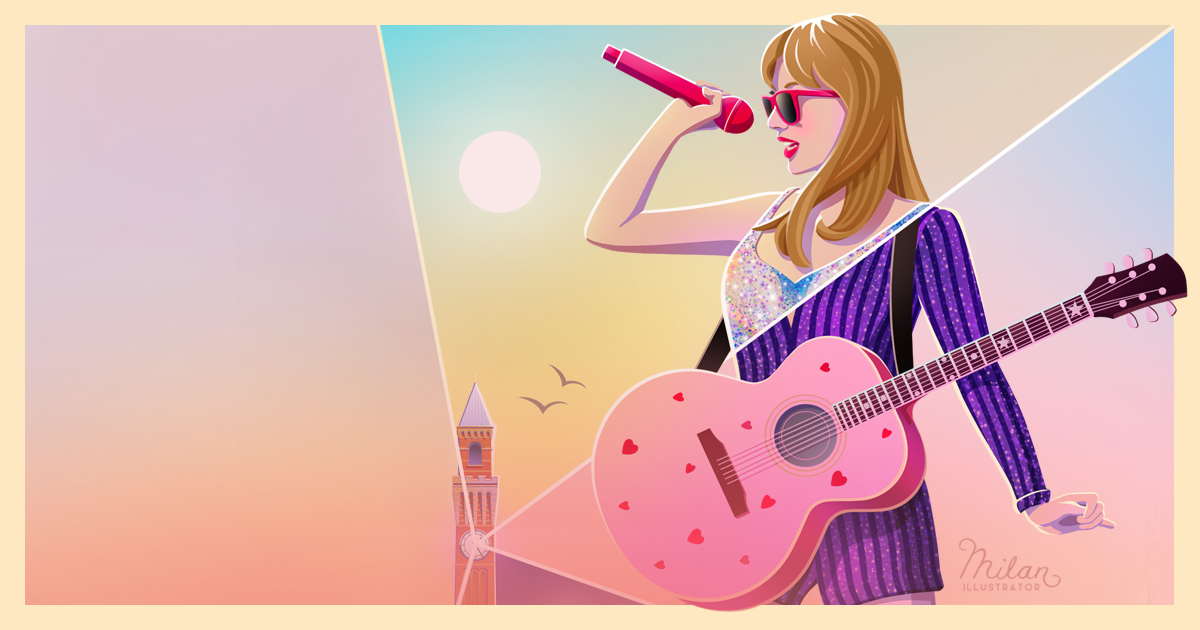
By Professor Sarah Montano
Birmingham Business School, University of Birmingham
We are delighted to host ‘The Taylor Swift Phenomenon’ as part of the ESRC Festival of Social Science. Taylor Swift’s ascent to such an iconic status compels us to question how society creates and sustains such cultural icons and the impact they have on people. At this event we analyse and critique the role of an icon and what this says about society.
Swift’s Global influence
Taylor Swift has reached icon status as her influence varies from retention of her music, her carefully curated image(s) and her politics. With her 149 date Eras Tour taking place across 5 continents and being the first tour to bring in over US$ 1 billion in revenue her reach is extensive. In the UK her tour is said to contribute £997 million to the UK economy, as noted by Parliament on 2nd September. At a time when many are concerned about the cost of living, it is timely to question: why do people want to spend £400 on just one evening?
Engagement beyond the stage
Not only are people seeking to attend the tour but her recent album made Taylor Swift the first artist to reach 100 million monthly listeners on Spotify. The digital staging of her tour (also available on Disney+ if you cannot attend) has drawn widespread praise for its immersive, constantly changing experience whilst also feeling personal to each audience member. People are keen not only to attend the tour, but to participate in a number of pre-events such as bracelet making, which have become phenomena in their own right and have led to a 500% rise in the sale of bracelet making gear! This trend is said to have arisen from the lyrics in “You’re On Own, Kid” where she says, “…make the friendship bracelets, take the moment and taste it.”
The Power of her lyrics
Speaking of lyrics, we ask why do her lyrics appeal so much to a wide range of people and ages? Many of her songs are vignettes, from The Last Great American Dynasty to Love Story and the trilogy of “August, Cardigan and Betty”, there is a literal story within. From her Red album, All Too Well is said to be one of the greatest breakup songs of all time. The longest song on the album, it articulates a story from the first days of a great romance to its destructive end, deeply resonating with a broad demographic.
The role of women
Central to our analysis of Taylor Swift, is the role of women and the continuing levels of misogyny in society too. With women still facing sexism in the workplace, the gender pay gap standing at 7.7% according to the ONS, and 3.3% of women experiencing sexual assault, 2024 is challenging for many women. Whilst Taylor Swift is very successful economically, she suffers some of the same issues, for example, in 2017, Taylor Swift won an assault case against an ex-radio DJ who she said had groped her at a 2013 concert. If such an artist as Taylor Swift faces the same challenges, what does that mean for women in general? She has attempted to challenge such power imbalances and critiqued the music industry. She used her power to pull her music from Spotify due to the tiny amount that artists make (in 2014 this was said to be $0.006) which devalues the work, effort and artistry in creating music. In 2017 she returned to Spotify. When Scooter Braun purchased Big Machine (her old label) Taylor said that she had faced maltreatment from him and tried to buy back her masters. In order to gain back control, she decided to re-record the albums, launched as “Taylor’s version.”
So, what does Swift’s cultural influence mean for modern society? By covering a range of topics from her lyrics, staging, her relationship with her fans and her impact on the global economy, often referred to as ‘swiftonomics’, we will explore the phenomenon that is Taylor Swift and examine what it means to be an icon in today’s society.
-
- Read more about Professor Sarah Montano
- Back to Social Sciences Birmingham
The views and opinions expressed in this article are those of the author and do not necessarily reflect the official policy or position of the University of Birmingham.
